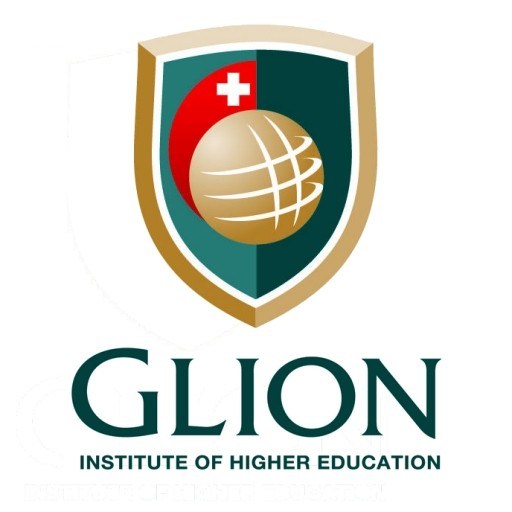Photos of university / #unigeneve
The Bachelor in Information Systems and Services Science at the University of Geneva offers a comprehensive interdisciplinary education designed to prepare students for dynamic careers in the rapidly evolving field of information technology and digital services. This programme combines core concepts of computer science, information systems, business administration, and service management to equip graduates with a broad understanding of technological innovation and its applications in various organizational contexts. Throughout the course, students engage with fundamental topics such as programming, data management, software engineering, systems analysis, and cybersecurity, while also exploring the strategic and operational aspects of information systems within enterprises. The curriculum emphasizes practical skills through laboratory work, project-based learning, and collaboration with industry partners, ensuring students develop not only technical competence but also problem-solving abilities, teamwork, and effective communication. Specializations or elective courses allow students to tailor their education toward areas like digital transformation, data analytics, or service management. The programme also focuses on fostering critical thinking about the social, ethical, and legal implications of information technology, preparing students to navigate challenges related to privacy, data protection, and responsible digital innovation. Upon completion of the Bachelor in Information Systems and Services Science, graduates are well-positioned to pursue careers in IT consulting, systems analysis, software development, project management, or to continue their studies at the master’s level. This programme’s rigorous academic structure, combined with opportunities for practical engagement and specialist training, makes it an ideal choice for students aiming to be at the forefront of digital transformation in various sectors.
The Master’s Degree in Information Systems and Services Science at the University of Geneva offers a comprehensive and interdisciplinary curriculum designed to prepare students for the rapidly evolving field of information technology and its application within organizations. This program aims to equip students with a solid theoretical foundation as well as practical skills necessary to analyze, design, implement, and manage complex information systems that support business processes and decision-making.
The program covers a wide range of topics, including database management, software engineering, computer networks, cyber security, data analysis, and human-computer interaction. Students will also explore service-oriented architectures, cloud computing, and emerging technologies that are shaping the future of digital services. By emphasizing both technical expertise and strategic understanding, the program prepares graduates to address real-world challenges faced by organizations seeking innovative IT solutions.
Throughout the curriculum, students engage in a variety of projects, case studies, and collaborative work, fostering teamwork and problem-solving skills. They gain hands-on experience with industry-standard tools and software, enabling them to handle complex projects from initial analysis through deployment and maintenance. The program also includes courses on the social, ethical, and legal aspects of information systems, ensuring students are prepared to consider the broader implications of technology in society.
In addition to technical training, the program emphasizes management and organizational skills. Students learn how to assess business needs, develop strategies for implementing new technologies, and evaluate the performance and security of information systems. The interdisciplinary approach ensures graduates are not only capable of technical tasks but also possess the strategic insight required to contribute to technological innovation within various sectors.
The program is suitable for students with a background in computer science, information technology, or related fields who wish to deepen their understanding of the complex interplay between technology and organizational needs. With a strong emphasis on research and innovation, students are encouraged to participate in ongoing research projects, internships, and collaborations with industry partners, providing valuable practical experience and networking opportunities.
Graduates of the Master’s in Information Systems and Services Science are well-positioned to pursue careers in IT consulting, system analysis and design, project management, cybersecurity, data analysis, or undertake further doctoral studies. The program aims to produce highly skilled professionals capable of driving digital transformation and innovation in diverse environments, from multinational corporations to public institutions. With a flexible structure and specialized electives, students can tailor their education to align with their specific interests and career goals, making this program an excellent choice for those aspiring to leadership roles in the field of information systems.
Program requirements for the Master's Degree in Information Systems and Services Science at the University of Geneva typically include a relevant undergraduate degree in computer science, information technology, or a related field. Applicants are expected to demonstrate proficiency in programming, systems analysis, and database management. A strong foundation in mathematics and theoretical computer science is also preferable. English language proficiency is mandatory, with accepted tests such as TOEFL or IELTS meeting minimum score requirements. Applicants may need to submit a motivation letter outlining their interest and career goals in the field of information systems. Letters of recommendation from academic or professional referees are usually required to attest to the applicant’s qualifications and motivation. Prior work experience in information technology or related industries can be advantageous but is not obligatory. The program may require completion of prerequisite courses if the applicant’s background lacks specific foundational topics, such as software development, data management, or system design. Admissions are competitive and based on academic achievements, relevant experience, and the applicant’s motivation. During the program, students are expected to participate in internships or practical projects that provide real-world experience in information systems development, management, and consulting. Successful completion of coursework, project work, and possibly a thesis is necessary to graduate. The curriculum emphasizes both theoretical understanding and practical skills, preparing students for careers in IT consultancy, systems analysis, project management, and digital transformation. Specific program requirements can vary slightly from year to year, so applicants are advised to consult the university’s official admissions guidelines and program descriptions for the most accurate and up-to-date information.
The financing of the Master’s program in Information Systems and Services Science at the University of Geneva is primarily supported through a variety of funding sources aimed at facilitating access and ensuring the sustainability of the program. Tuition fees for this program are set according to the university’s regulations and are generally adjusted periodically; these fees are accessible on the university’s official website and vary depending on the student’s nationality, residency status, and other factors. For students who are residents of Switzerland or the European Union, the tuition fees tend to be lower compared to non-EU international students. Additionally, the university offers several scholarship opportunities designed to assist students with their financial needs, including merit-based scholarships that recognize academic excellence, need-based grants for students demonstrating financial hardship, and mobility scholarships that support international exchanges related to the program.
Students can also explore external funding sources such as governmental or private scholarships provided by organizations that support higher education in Switzerland or specifically in fields related to information systems and services science. Loan programs are available through Swiss financial institutions for eligible students wishing to finance their studies, with favorable interest rates and repayment conditions. Furthermore, many students finance their studies through part-time work, internships, or assistantships offered by the university or affiliated institutions, which not only provide financial support but also valuable professional experience relevant to their field of study.
The university has partnerships with industry and research institutions that sometimes offer funded projects or internships, providing additional financial advantages for students enrolled in this program. Moreover, programs such as the Erasmus+ or other European exchange initiatives may also include financial stipends for participating students, helping offset travel and living expenses during study periods abroad. International students are often encouraged to look into these options early during their application process to identify suitable funding sources.
Finally, the university’s financial aid office provides counseling and up-to-date information about available funding opportunities to assist students in planning their finances and ensuring they can complete their studies without undue financial burden. Overall, a combination of university-funded scholarships, external grants, loans, part-time employment, and international exchange stipends supports students financially throughout their studies in this Master’s program.
The Bachelor in Information Systems and Services Science at the University of Geneva provides students with a comprehensive education in the principles, theories, and practical applications of information technology and systems management. The programme is designed to equip students with the skills necessary to analyze, design, and implement information systems that support business operations and decision-making processes. Emphasizing both technical expertise and managerial competencies, the curriculum covers areas such as software development, database management, networking, cybersecurity, data analysis, and information systems strategy.
Students gain practical experience through project work, internships, and collaborations with industry partners, preparing them for careers in IT management, system analysis, and consulting. The programme also addresses the ethical and social implications of technology use, encouraging graduates to develop responsible and sustainable solutions. The university’s strong focus on research and innovation ensures that students are exposed to the latest developments and trends in information science, such as artificial intelligence, machine learning, and cloud computing.
Graduates of this programme are well-positioned to pursue advanced studies or enter the workforce in roles related to IT project management, systems analysis, data management, and digital transformation initiatives. The programme is suitable for students who are analytical, detail-oriented, and interested in combining technical knowledge with strategic thinking. Its interdisciplinary approach reflects the evolving nature of information systems, aiming to produce versatile professionals capable of adapting to various sectors including finance, healthcare, government, and the private industry. The programme also promotes a global perspective, preparing students to work in diverse multinational environments.








